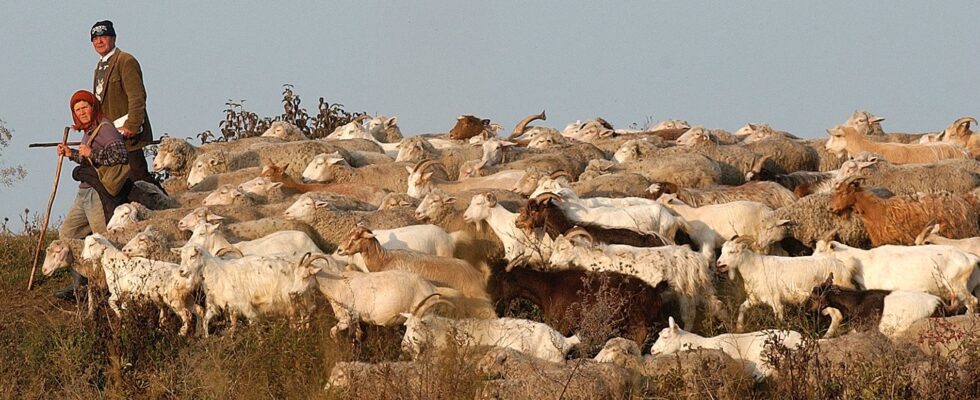unsaveSave
expand-left
fullscreenFarmers with sheep and goats in Romania. Archive image. Photo: Vadim Ghirda/AP
Over 60,000 animals have been killed in connection with an outbreak of sheep and goat plague in south-eastern Europe.
But it is unlikely that the serious disease will spread to Sweden, according to the Norwegian Veterinary Institute (SVA).
Sheep and goat plague also has the name “peste de petits ruminants” and is sometimes abbreviated PPR.
The disease is caused by a virus. It affects small ruminant animals, primarily sheep and goats. Camels and some wild ruminants can also be affected.
PPR normally occurs in Africa and parts of Asia. Once before, in Bulgaria in 2018, the plague has appeared within the EU.
The new outbreak has been detected in Greece and Romania during July. To stop the infection, more than 60,000 animals have been euthanized in the two countries, according to the Danish news agency Ritzau, which refers to Reuters, among others.
Mortality among infected animals is high, even apart from culling. In the current outbreak, more than every second animal dies, according to SVA.
However, PPR does not infect humans. The risk of spreading to Swedish sheep and goats is also considered to be very small.
– The infection is mostly spread via direct contact between animals. We have no import of animals from the affected countries to Sweden, says Beth Young, assistant state veterinarian at SVA.
